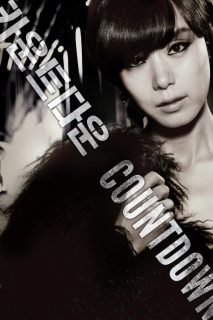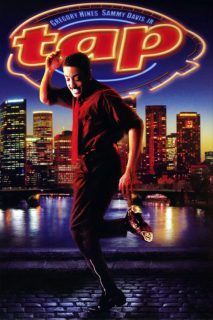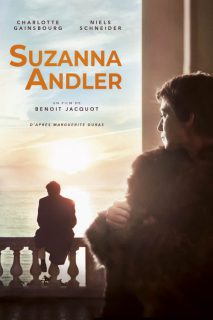
- Year: 2017
- Released: 18 May 2018
- Country: United Kingdom
- IMDb: https://www.imdb.com/title/tt1667321/
- Rotten Tomatoes: https://www.rottentomatoes.com/m/on_chesil_beach
- Metacritics: https://www.metacritic.com/movie/on-chesil-beach
- Available in: 720p, 1080p,
- Language: English
- MPA Rating: R
- Genre: Drama, Music, Romance
- Runtime: 110 min
- Writer: Ian McEwan
- Director: Dominic Cooke
- Cast: Billy Howle, Saoirse Ronan, Andy Burse
- Keywords: based on novel or book, 1960s, sexual abuse, newlywed, honeymoon,
 | 6.3/10 |
 | 62/100 |
 | 68% – Critics |
 | 61% – Audience |
On Chesil Beach Storyline
It is 1962. Edward Mayhew and Florence Ponting first meet after they graduate from different universities. Edward is a historian, he is also a rock-and-roll fan, while Florence is a violinist who plays classical music, she is a member of a quartet of musicians. Edward and Florence fall in love almost at once, they introduce each other to their respective families, they then decide they’ll get married, even with their different backgrounds. Florence is worried about the wedding, and has fears about sex, but she has no one she can talk to about these fears, and it turns out while Edward and Florence are on their honeymoon, which is at “Chesil Beach”, the title of the movie, their different backgrounds come to out, Edward can get angry very quickly, and he can sometimes become physically belligerent, while Florence has a past with her Father that is never spoken about, her Father was dominating, and there is the possibility that he molested her. Both Edward and Florence are inexperienced when it comes to sex, and on the first night of their marriage, sex between them goes badly wrong. Florence runs away along the beach, and after an angry Edward catches up to her, Florence explains that while she loves Edward with all her heart, and wants to spend the rest of her life with Edward, it can only ever be as a platonic wife, Edward is angry and rejects this idea, and after a short while, the couple separate, and the marriage is annulled. It is now 1975, and a young girl walks into Edwards record shop, he soon realizes that this young girl, is Florence’s daughter, and although it hurts him, he then starts to remember about his lost love, the years pass, and it’s now 2007, Edward has never married, he then hears on the radio that Florence will be giving a concert with her quartet, her now husband is a part of. Edward decides he will attend the concert, his ticket has him sitting close to the front, Edward and Florence’s eyes meet, just then, a tear falls from both Edward and Florence.
On Chesil Beach Play trailer
On Chesil Beach Photos



On Chesil Beach Torrents Download
| 720p | bluray | 951.13 MB | magnet:?xt=urn:btih:3C6AA084EA308BF231E208CCF3631EC73970E8DD | |
| 1080p | bluray | 1.78 GB | magnet:?xt=urn:btih:393E9F7C7ED5CDAF0FA636D74F487D5DD0474FA3 |
On Chesil Beach Subtitles Download
| Chinese | subtitle On.Chesil.Beach.2017.720p.BluRay.x264-.cht | |
| English | subtitle On.Chesil.Beach.2017.720p.BluRay.x264. | |
| Greek | subtitle On.Chesil.Beach.2017.720p.BluRay.x264. | |
| Spanish | subtitle On.Chesil.Beach.2017.720p.BluRay.x264. | |
| Spanish | subtitle On.Chesil.Beach.2017.720p.BluRay.x264. |
On Chesil Beach Movie Reviews
A Royal Turn-Off on Chesil Beach
“On Chesil Beach” is primarily set in the year 1962. But by all indications, the action should really be taking place in 1862 at the height of the morally repressive era in Victorian England.
In the guise of being a romance, the film develops the story of a young British couple, Florence Ponting and Edward Mayhew, who fall in love, but their relationship falls apart with a disastrous wedding night that culminates in a long conversation in the idyllic, pebbly setting of Chesil Beach. Again, the story sounds like that of a frustrated married couple out of a Henrik Ibsen play like “A Doll’s House.”
In the bonus track of the DVD, there was a lengthy segment where the writer, director, producer, and actors attempted to offer a rationale for this strange film. Here is a digest of their remarks:
(1) The leading actress described the film as being “about two lovers.” That statement is difficult to understand, based on a relationship that was never consummated.
(2) The screenwriter described the theme of the young couple “crossing the line” from “innocence” to “experience.” With vague generalities, the writer was avoiding the main subject matter of the film: the frigidity of Florence Ponting.
(3) The screenwriter made another unsubstantiated claim that the conflict between Flo and Edward was based on “emotional understanding running ahead of physical understanding.” But if that were the case, it was difficult to believe that their “problem” was not identified much earlier in the lengthy period of courtship, as opposed to the single, shocking revelation on their wedding night.
(4) The film was described as “a love story” and “a tragedy.” But the break-up of the couple due to a case of frigidity was hardly the subject matter of a love story. The cringeworthy subject matter was closer to pathos than tragedy. One of the film’s producers made the jaw-dropping observation that “many people will identify with the relationship of Edward and Florence.” Without any support for her contention, the producer then went on to assert that the film is “universal” in its implications!
(5) The filmmakers boasted of how the film reveals the “internal life” of the characters. But in the crucial scene where Florence meets with her local vicar, all we see is that she is bottled up emotionally. We never learn much of Flo’s internal life until the climactic conversation on Chisel Beach. There might have been more empathy for Flo’s character if she had opened up to the vicar with the truth.
Contrary to the objective of the film artists, “On Chesil Beach” was not about “internal life,” but about the suppression of that life.
SPOILER ALERT: At the close of the film, we fast forward from 1962 to 1975 and finally to 2007. During this sequence, it is revealed that Flo married and had children with Charles Morrell, the male member of her string ensemble. But it is never explained how that relationship was successfully consummated or how Flo had changed over time from her disastrous experience with Edward.
There is an inherent dishonesty in a film that makes a bold claim for universality, yet refuses to explain character development and how people change over time. Specifically, what happened to Flo between the wedding night at Chesil when she described her bedroom experience with Edward as “revolting” and the time when she evidently discovered conjugal bliss with Charles Morrell?
Most assuredly, Edward Mayhew has to be wondering what happened behind closed doors between Florence Ponting and Charles Morrell that was different from his experience with Flo at the Chesil Beach hotel.
Love on the beach
Am a great fan of period dramas, have been from a very early age. Have loved Saoirse Ronan in many things (great in ‘Atonement’ and continued to grow and grow) and there is a lot of talent in the cast. Also love Ian McEwen’s book, which is unflinching and very moving though with a complicated structure that is difficult to adapt, and was interested hearing that he would be the one adapting it to film.
Catching ‘On Chesil Beach’ well after its somewhat brief release, my thoughts were that it was well done in many areas but came up short somewhat and could have been much better. This is an example of a book to film adaptation where the book would have perhaps fared better adapted as a mini-series, meaning hopefully richer detail and more time to go into depth. As an adaptation of the book it disappoints, something that one wouldn’t expect with McEwen himself adapting it, on its own (and a fairer way to judge) it doesn’t fare too shabbily at all.
‘On Chesil Beach’, first of all, looks great on the most part. It’s beautifully shot, with some shots looking like picturesque paintings (particularly outdoors), and the period detail is handsome and evocative. The music matches the restrained tone of the film well and the music choices, consisting of Elgar, Bach, Beethoven, Schubert, Mozart and Rachmaninov, are well chosen. Particularly “Nimrod” from Elgar’s ‘Enigma Variations’ and the second movement of Schubert’s “Death and the Maiden” quartet, both sublime pieces in their own right, particularly the Schubert.
In terms of the performances, Ronan is wonderful, very sincere and heartfelt performance with enough steel to stop the character from being bland. Billy Howe is a sympathetic and suitably awkward match for her and their chemistry grows nicely from uncertain to intricate without rushing it. Ann Marie Duff, despite not enough screen time, is particularly good of the supporting cast.
While steady and deliberate, this proved to be a perfect and necessary approach with the restraint and intricacy of the story coming through. There are thought-provoking moments and others that are genuinely affecting, the relationship and the reactions to it just about believable. The direction, for a first timer, was competent in the direction of the actors and the mood.
By all means, ‘On Chesil Beach’ has imperfections. The choppiness being a big issue. Not just the editing, which does feel jumpy in places, but McEwen struggles surprisingly with bringing his complicated story structure in the book to screen. Instead of being flowing from scene to scene effortlessly, it feels choppy at times.
This does affect the story clarity with the back and forth not always as clear as it could and also the depth of characterisation. The personalities are correct and interesting enough but there was more of an opportunity to go more skin-deep, motivations better explored.
Found the dialogue to have its clunky and corny moments, while some of the middle act is at points sluggish (after a great first act). While picking up in emotion afterwards, the ending was far too pat and felt tacked on. If anybody who hasn’t read the book thinking that this ending doesn’t sit right within the film and that the ending should have been something else they cannot be blamed, there is that feel and that it was a vastly inferior alternate ending is obvious.
Concluding, worthwhile but many good elements, particularly the production values and acting, but comes up short with the choppy structure and the ending as particular debits. 6/10 Bethany Cox
A good period piece for the first 80 minutes before a magnificently touching final half hour will win you over
Here we have “On Chesil Beach”, set in the middle of the 20th century for the most part, i.e. briefly after WWII, and this is probably my new second favorite movie with the imdb release year 2017. Director is Dominic Cooke and these 110 minutes are his first full feature movie I believe. The writer is Ian McEwan who has written the bases for many many movies in the last decades, the most known probably Atonement over a decade ago. For this one here, he adapted his own novel and looking at the script and story here, this may have been a really wise choice. It is that good. Sure it helps to have an actress like Saoirse Ronan on board who may very well be the by far most talented performer from her age group by now. Three Oscar nominations before the age of 25 says it all and hopefully the first win is only a matter of time. But let’s take a look at this film here. The first 75-80 minutes, it is a decent watch, a convincing period piece with no major weaknesses that may not fly by, but also never drags by any means. Several interesting subjects are dealt with like social differences between lovers, unrequited love, struggling parent-children relationships, first love, marriage (or the desire to get married), anger management, inexperience when it comes to dealing with the other sex, aspiring music careers and more. It’s all okay at this point, but nothing stands out too much. So I prefer to focus more on the last hour in my review, namely the moment when we have the two protagonists meet on Chesil Beach as newly-weds and we find out about their struggles that result from their unfulfilling wedding night. His accusations that she left him standing there humiliated. Her proposal to live together as a couple for everybody to see, but not to pursue a sexual relationship at all. Heavy material really, it was a different time. Today of course we can say they were both very young, especially the girl and that her perception and her longings and desires in that area may very well change at some point in the near future and that it should not be seen like that as if it is something finite really. Or is it? Maybe he could not have approached her from that perspective every again and he must have hoped for her to take steps accordingly. I don’t think it is a case of her not loving him, they did love each other, but their problem was probably his temper and his ego as well, his fear of being a failure as well as her insecurities that probably did not help matters at all, even if in theory they should have.
Then we have two big jumps in time afterward: the first takes us 20 years later, maybe more into the 1970s and we see the male protagonist considerably older now, leading a hippie life with several sex partners it seems, so clearly more secure in that area now and when he tells the story about his past, without mentioning himself, we find out how much he still longs for the girl from his younger years and maybe how much he regrets already not sticking with her. There is that crucial scene with a young girl at the man’s record store. We find out she is the female protagonist’s daughter thanks to the inclusion of many smart and quality touching references about Chuck Berry (that shows us how she kept longing for him), the name of her little orchestra and eventually the girl carrying the beautiful name Chloe. I found this scene especially heartbreaking as we see that Ronan’s character obviously developed sexually away from her initial fears and struggles and even became a mother who was probably leading a fairly normal life when it comes to physical attraction and performance in the bedroom. You could see how it broke his heart to find out about that. And that at the same time, had she stayed with him back then, or he with her, this little girl never would have existed. And the second jump in time is even further taking us deep into the 21st century when both are old now. We have him visit the final concert by her and her band, something that was referenced many times before in the movie how he will see her and how it will be special, only with the difference that in these plans they are both still loving couples, but eventually it was as if their marriage never existed. And when we found out who became the father of her children, it is especially heartbreaking as this man was not one she showed much interest in when meeting the male central character earlier. When we see him burst into tears in the audience, it is not really possible to not join him in the theater you are sitting and experiencing this truly sad and depressing turn of events. I think pretty much everybody was crying in the showing I was in, inclusding myself obviously and when I was outside again seeing people leave the theater with wet eyes still gave me a feeling of warmth really. They may be strangers, but that did not keep us from feeling the same. What else is there to say. I think my perfect rating says it all. It is only a 7 probably before the last 30 minutes, but then it all goes north so quickly and so unstoppably that I cannot do anything other than giving it a perfect 10/10 here. For me personally, I somehow always felt that there would not be a happy ending in store for the two eventually and that’s perfectly fine because it did feel realistic. Billy Howle is of course not as good as Ronan for the most part, but that is fine because pretty much nobody his age is these days. He still holds himself pretty well I must say. Might be a good career in store for him too in the next couple years. Overall, this is a must-see, preferrably with your significant other. It also will make you think a lot about life I hope and about how all decisions have consequences, many of them very crucial ones and it’s important to make the right ones as much as you can, so you won’t get in a situation like our (perhaps eventually fairly lonely) male protagonist here to regret what he did in terms of life and love. A good film that closes in on perfection towards the end. You will be moved and brought to tears if you’re not dead inside. Highly, highly recommended, also to males who can perhaps even form a stronger connection with the tragedy towards the end because of whom it happens to. Do not miss out.



